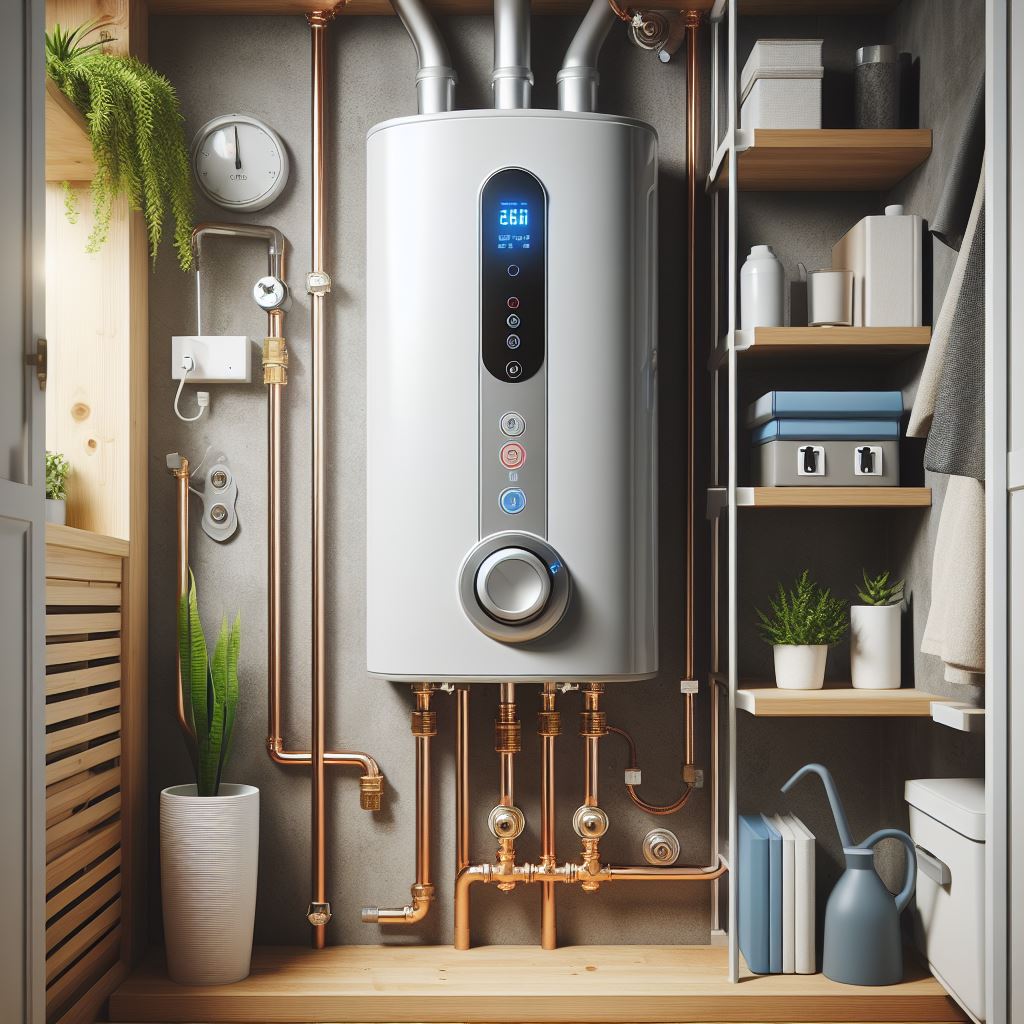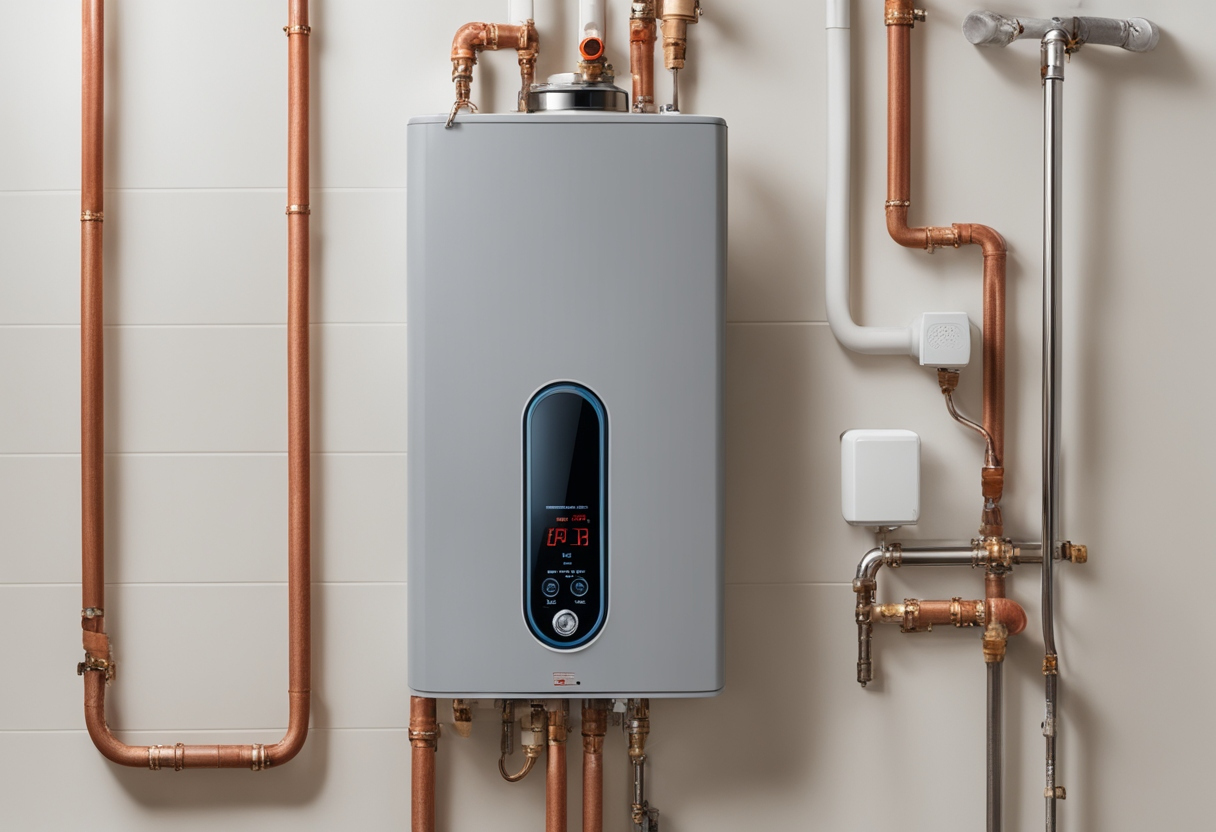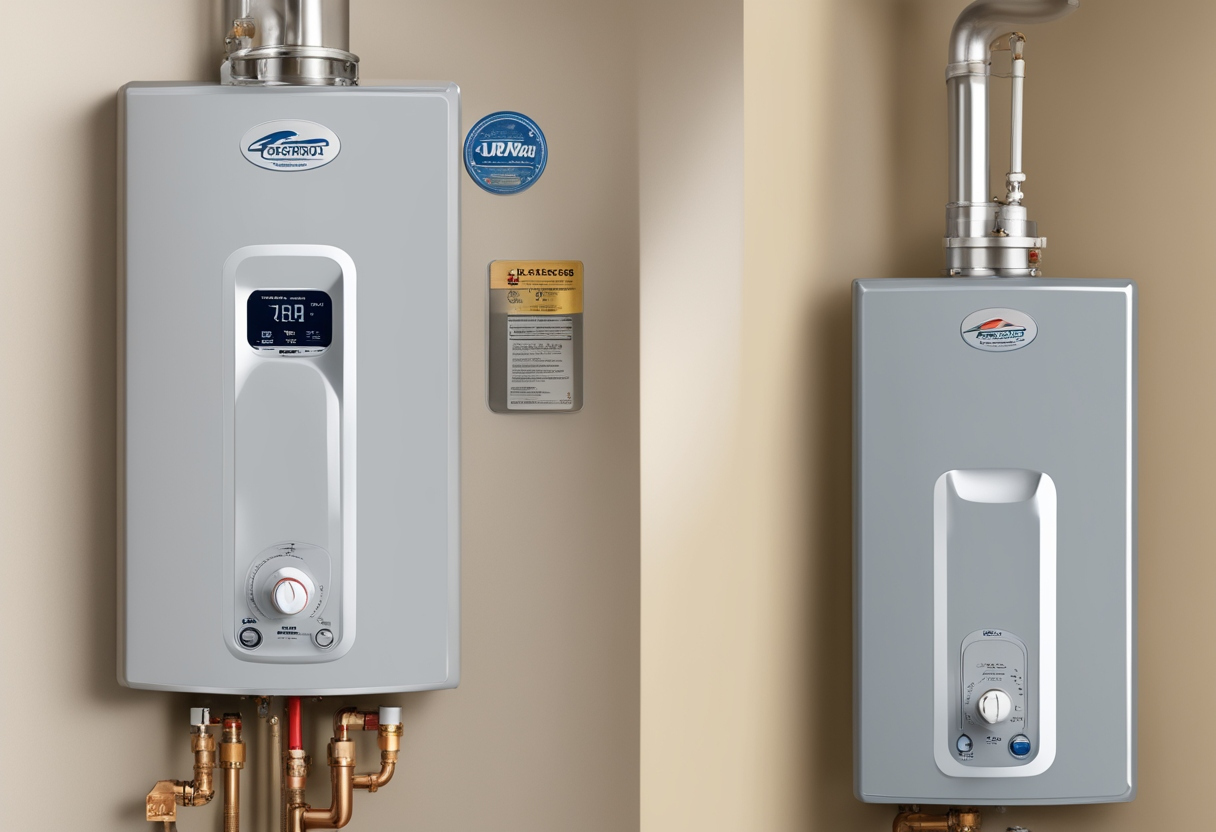The Role of MLCC in Tankless Water Heater

Tankless water heaters, also known as on-demand water heaters, are innovative devices that provide hot water instantaneously without the need for a storage tank. Unlike traditional water heaters that continuously heat and store water, tankless models heat water only when it is needed, offering several advantages in terms of energy efficiency, space savings, and continuous hot water supply.
In a tankless water heater system, cold water enters the unit through a pipe and is heated by either a gas burner or an electric element as it flows through the unit. The heated water then exits the unit and travels to the faucet or appliance where hot water is required. Because there is no storage tank, tankless water heaters eliminate the standby heat loss associated with traditional tank-style heaters, resulting in energy savings.
Tankless water heaters are available in various sizes and configurations to suit different household needs. They can be installed centrally to serve the entire house or point-of-use to provide hot water to specific faucets or appliances. Additionally, tankless water heaters are known for their long lifespan, compact size, and environmentally friendly operation.

Importance of Electronics in Tankless Water Heaters
Tankless water heaters rely heavily on electronic components to function efficiently. These electronic systems control various aspects of the heater’s operation, including water flow, temperature regulation, and safety features. Multilayer Ceramic Capacitors (MLCCs) play a crucial role in these electronic circuits, ensuring reliable and accurate operation.
One key function of MLCCs in tankless water heaters is filtering. They help remove unwanted noise and interference from the electrical signals, ensuring smooth operation of the control circuits. MLCCs also provide decoupling, which stabilizes the voltage levels in the electronic components, preventing fluctuations that could lead to malfunctions or damage.
In addition to filtering and decoupling, MLCCs are used for coupling signals between different parts of the circuit, enabling communication between the various components of the water heater. This allows for precise control of the heating elements and water flow, ensuring that the heater operates efficiently and safely.
MLCC Applications in Tankless Water Heaters
Multilayer Ceramic Capacitors (MLCCs) are critical components in the electronic systems of tankless water heaters, serving various functions that are essential for their operation. Here are some key applications of MLCCs in tankless water heaters:
Control Boards: MLCCs are used on control boards to stabilize voltage and filter out noise, ensuring the reliable operation of the electronic control system. They help regulate the flow of electricity and prevent interference that could disrupt the heater’s performance.
Sensors: MLCCs are often used in conjunction with sensors in tankless water heaters to measure temperature, flow rate, and other parameters. They help process the sensor signals and ensure accurate data transmission to the control system.
Power Supplies: MLCCs are used in the power supply circuitry of tankless water heaters to stabilize voltage levels and filter out unwanted noise. This helps protect the electronic components from damage and ensures a stable power supply to the heating elements.
Safety Features: MLCCs are also used in safety circuits, such as those that monitor for overheating or overpressure conditions. They help ensure that the heater shuts off properly in the event of a safety hazard, protecting both the unit and the user.
EMI/RFI Suppression: MLCCs are used for electromagnetic interference (EMI) and radio frequency interference (RFI) suppression in tankless water heaters. They help reduce interference from external sources, ensuring the proper functioning of the electronic control system.
Benefits of Using MLCCs in Tankless Water Heaters
Multilayer Ceramic Capacitors (MLCCs) offer several benefits when used in the electronic systems of tankless water heaters. These benefits contribute to the overall performance, efficiency, and reliability of the heaters. Here are some key advantages:
High Reliability: MLCCs are known for their high reliability and long lifespan, making them ideal for use in critical electronic systems such as those found in tankless water heaters. They are resistant to temperature fluctuations, vibrations, and other environmental factors, ensuring consistent performance over time.
Compact Size: MLCCs are compact in size compared to other types of capacitors, making them ideal for applications where space is limited, such as in tankless water heaters. Their small size allows for more efficient use of space and easier integration into the heater’s electronic systems.
High Capacitance: MLCCs offer high capacitance values relative to their size, allowing them to store and release large amounts of electrical energy quickly. This is beneficial in tankless water heaters, where rapid heating and precise control are required.
Low ESR and ESL: MLCCs have low equivalent series resistance (ESR) and equivalent series inductance (ESL), which means they can deliver and absorb energy efficiently. This is important in tankless water heaters, where energy efficiency is a key consideration.
Wide Operating Temperature Range: MLCCs can operate over a wide temperature range, making them suitable for use in tankless water heaters, which may be exposed to varying temperatures depending on their location and environment.
Cost-Effective: MLCCs are cost-effective compared to other types of capacitors, making them a practical choice for manufacturers of tankless water heaters looking to balance performance and cost.

Different MLCC Supplier for Tankless Water Heater
Samsung
Samsung offers a range of Multilayer Ceramic Capacitors (MLCCs) that can be suitable for use in tankless water heaters, depending on the specific requirements of the application. Some common series of Samsung MLCCs that may be suitable for tankless water heaters include:
CL Series: The CL series offers a wide range of capacitance values and voltage ratings, making them versatile for various applications, including tankless water heaters.
CM Series: The CM series is known for its high capacitance values, making it suitable for applications that require large amounts of energy storage, such as in tankless water heaters.
CH Series: The CH series offers high capacitance values and high voltage ratings, making them suitable for applications that require high reliability and performance, such as in tankless water heaters.
CK Series: The CK series is designed for high-temperature applications, making them suitable for use in tankless water heaters that may be exposed to elevated temperatures.
YAGEO
Yageo, like Samsung, offers a range of Multilayer Ceramic Capacitors (MLCCs) that can be suitable for use in tankless water heaters. Yageo’s MLCCs are known for their high quality and reliability. Some common series of Yageo MLCCs that may be suitable for tankless water heaters include:
CC Series: The CC series offers a wide range of capacitance values and voltage ratings, making them versatile for various applications, including tankless water heaters.
CCG Series: The CCG series is designed for general-purpose applications and offers a balance of performance and cost-effectiveness, making them suitable for use in tankless water heaters.
CCS Series: The CCS series is designed for high-temperature applications, making them suitable for use in tankless water heaters that may be exposed to elevated temperatures.
CCM Series: The CCM series offers high capacitance values and high voltage ratings, making them suitable for applications that require high reliability and performance, such as in tankless water heaters.
As with Samsung MLCCs, it’s important to consult Yageo’s datasheets and application notes to select the most suitable MLCC for your specific tankless water heater application, considering factors such as capacitance, voltage rating, temperature stability, and size constraints.
